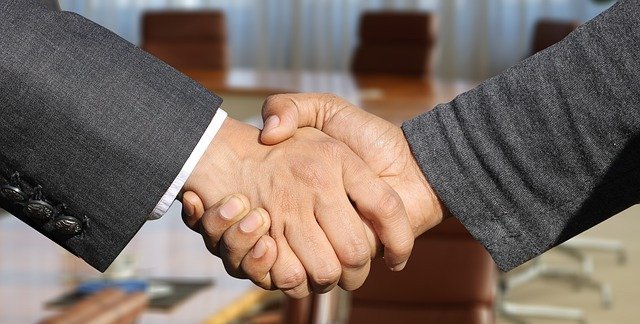- November 11, 2020
- Posted by: David Marshall
- Category: Business, Management

An email from my friend, Richard Croyner, reminded me about some advice I had given about how building relationships and partnerships are more important than transactions.
He said, “I have spent 35 years in the transportation and supply chain industry and so many people look at this segment of business as a transaction — you get results with relationships and you get results with partnerships.”
It’s a sentiment I’ve heard echoed elsewhere: I’d rather lose a customer than a friend.
Basically, if you want to have a successful relationship with your vendors, and have them treat you well, you need to motivate them to want to do things for you.
For example, if you chisel away at them, quarter after quarter, year after year, beating them down to the lowest possible price, they’ll figure out how to make money from you another way. Which means your low price will cost you in service, attention, or product quality. If you’re the lowest value customer, you’ll get the lowest priority on their end. If they can’t make money from your purchase, they’ll recoup it by skimping on your service.
 Let’s say you’re negotiating for an enterprise computer system. It’s large and complex, and you recognize that you’re not the expert, the vendor is. You want the vendor to be part of your team, you want them to help you with training, and you want them to help you solve problems with continuing customer service.
Let’s say you’re negotiating for an enterprise computer system. It’s large and complex, and you recognize that you’re not the expert, the vendor is. You want the vendor to be part of your team, you want them to help you with training, and you want them to help you solve problems with continuing customer service.
But if you negotiate too hard and get the lowest possible price out of them, all they’ll want to do is dump the product on you and walk away. You’ll spend a lot more time and money ensuring the product works or fixing it when it’s broken, than if you had just made a fair deal in the first place. In other words, if you had focused on the relationship and not the transaction, you wouldn’t be in such a mess.
It’s the same thing if you’re buying a product. You could end up getting some bad product from a vendor, but if you’ve really squeezed the hell out of them, they might take their own time in responding to you over a problem. Why? Because they’re first helping customers who allowed them to earn a profit. Those customers get priority because they value relationships over transactions.
A story about valuing relationships over transactions
Years ago, the U.S. government came out with incentive programs for people to look for energy-saving products. One of the products they incentivized was lighting products, so a lot of electrical wholesale distributors would do lighting audits for companies. The incentives were so good, you could replace your lighting in your facilities or offices basically for free because you got the incentives and then you got the reduced utility bill, so it actually paid you to make the switch.
I decided to do this in one of our facilities and used an electrical wholesale distributor who was both a customer and a vendor. They did the audit, calculated the ROI, and I gave them the go-ahead, and they did the job.
When we got the check for the incentive, it was actually greater than they had calculated. By a significant amount. For the story’s sake (and because I don’t entirely remember), let’s say the initial calculation was $100,000 but we actually received $120,000.
I took half of that overestimate and gave it back to the distributor. I told them,”We got more than we expected and since we’re partners, I want you to benefit from it as well.”
The distributor told me that, in 45 years, no customer of his had ever done that for them before, and it meant a lot that we would. He still tells that story today.
What did that get us in return? It got us absolute loyalty and his personal attention. He was the owner of a huge organization, and if any of his people ever did something we didn’t like or was going to hurt our own business, I had his ear 24/7. I could call him and he would answer my call. He also became one of our best customers and remained loyal to us for years.
That kind of relationship is invaluable. That $10,000 gift paid off in more ways than one, and it certainly paid for itself many times over. So how do you put a price on that? You don’t, and it would not have been worth missing out on everything else over that $10,000?
What we got was much, much more valuable in return. We got someone in a high place who looked out for us and delivered much more in value than what we gave up.
Plus, he was a good friend to boot.
I’ve been a manufacturing executive, as well as a sales and marketing professional, for a few decades. Now I help companies turn around their own business, including pivoting within their industry. If you would like more information, please visit my website and connect with me on Twitter, Facebook, or LinkedIn.
Photo credit: Geralt (Pixabay, Creative Commons 0)

